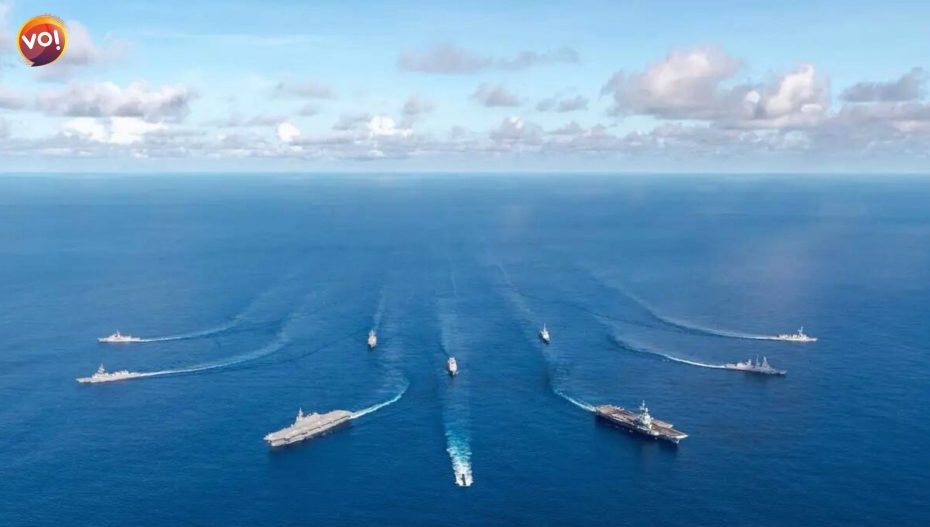Iran’s naval forces will participate in combined drills with their Russian and Chinese counterparts by the end of March 20 during a period of increased regional tensions owing to the Israel-Hamas conflict.
Yemen’s Iran-backed Houthi rebels have targeted commercial vessels in the Red Sea, deploying missiles, drones, and helicopters. They claim the ships targeted are linked to Israel. The crisis has undoubtedly impacted global trade as vessels have avoided this route.
Additionally, China’s influence in the area remains a worry. Earlier this week, Beijing justified the ship’s stay in the Indian Ocean nation of the Maldives, claiming it was there for peaceful reasons and to advance ocean science knowledge.
Upon New Delhi’s objection to Chinese ships docking in its ports, Colombo even banned research vessels from accessing its territory for one year. Indian watchers reported that the ships were involved in espionage activities.
Meanwhile, The Print reported that the countries of the Indian Ocean region met in Perth to emphasise the importance of keeping the ocean zone stable and sustainable.
“If the conflagration in the Middle East expands, it is not just shipping through the Red Sea which is affected,” Singapore’s foreign minister Vivian Balakrishnan told media outlets. “But what’s happening in the Red Sea and the Houthis is a stark reminder that chokepoints exist in the Indian Ocean.”
Indian External Affairs Minister S Jaishankar said, “As we gaze at the Indian Ocean, the challenges besetting the world are in full display. At one extremity, we see the conflict, threats to maritime traffic, piracy and terrorism. At the other, there are challenges to international law, concerns about freedom of navigation and overflights, and of safeguarding sovereignty and independence.”
He highlighted the over-concentration of manufacturing and technology, creating supply-side risks.
Jaishankar believes lateral land-based connectivity throughout the Indian Ocean region was the key to aiding maritime flows.
He added that the India-Myanmar-Thailand Trilateral Highway to India’s east and the recently planned India-Middle East-Europe Economic Corridor to India’s west could be “game-changers connecting the Pacific to the Atlantic.”
Why India’s clean Air Programme Needs Swachh Bharat-Like Initiative. Click Here











